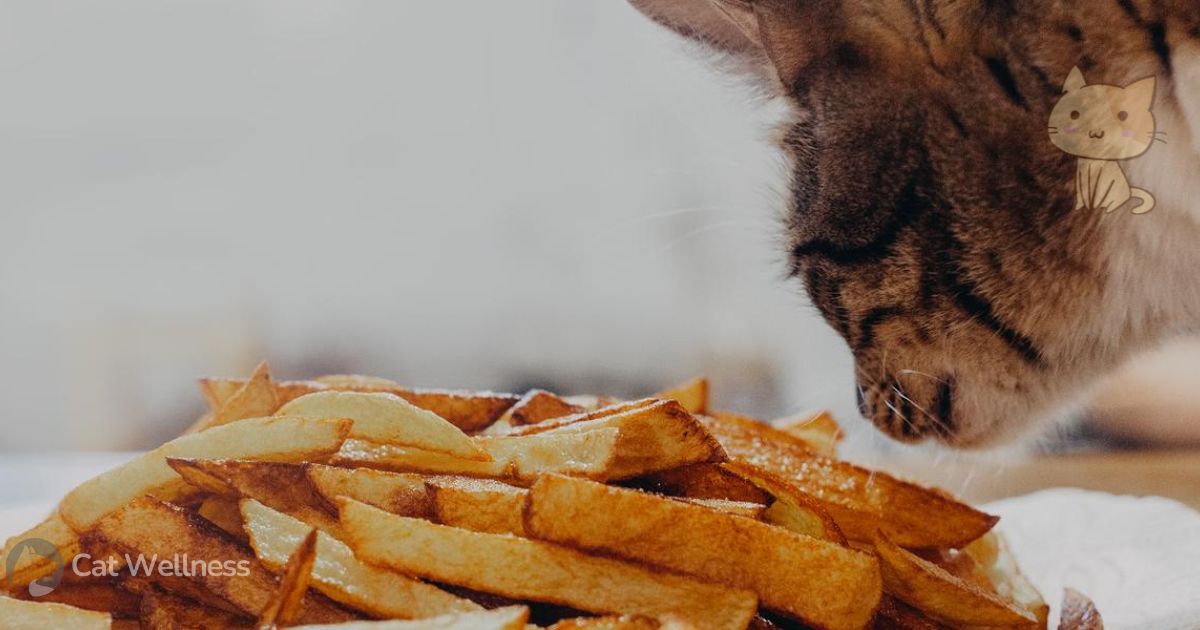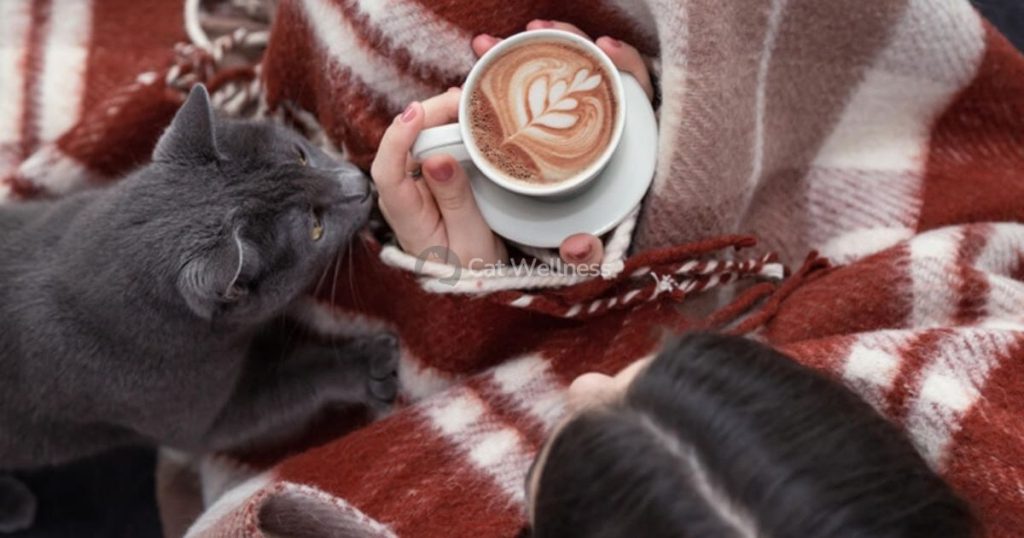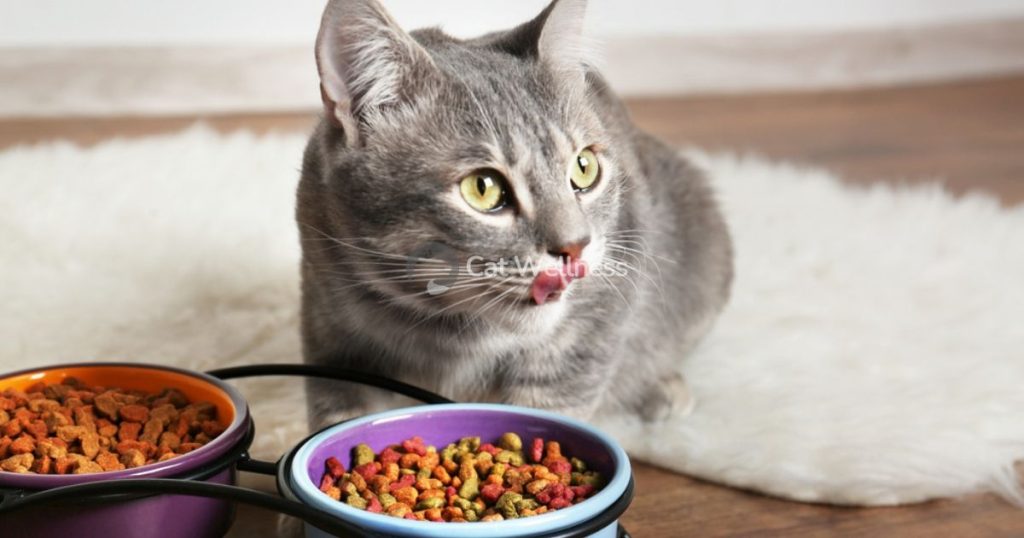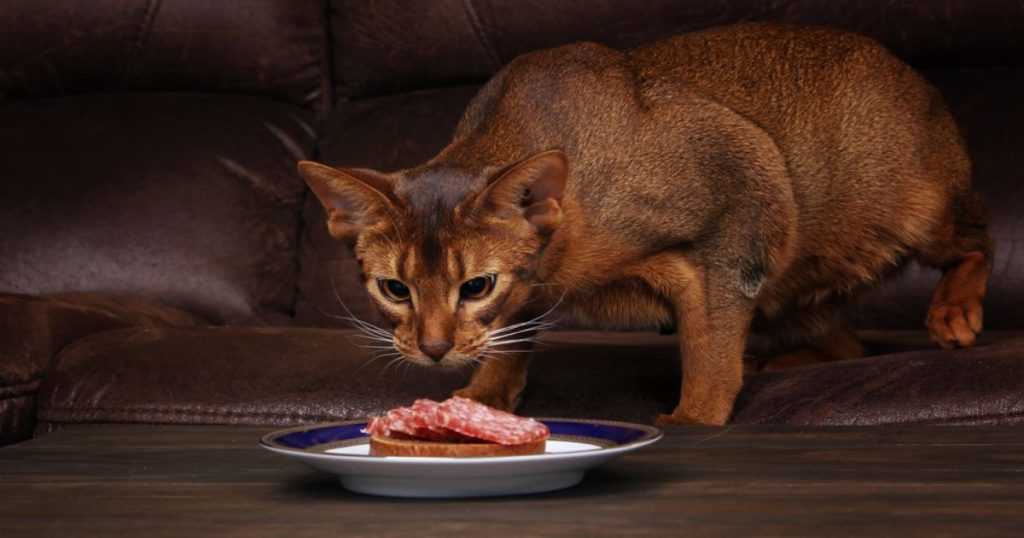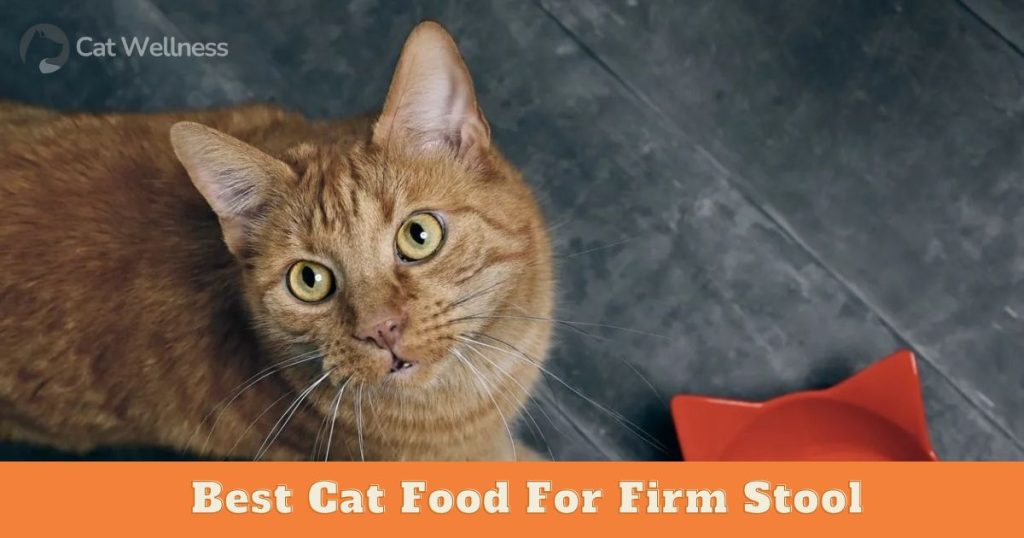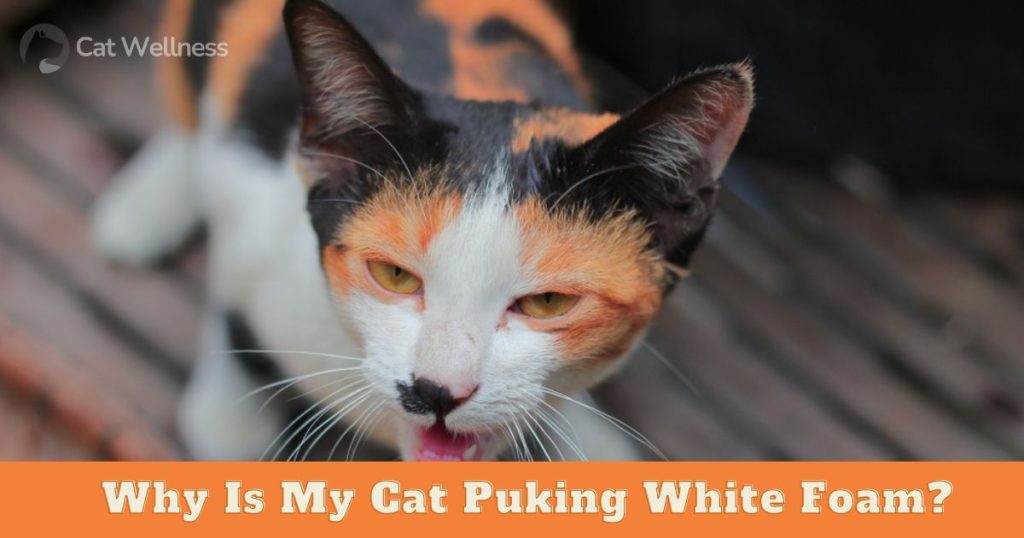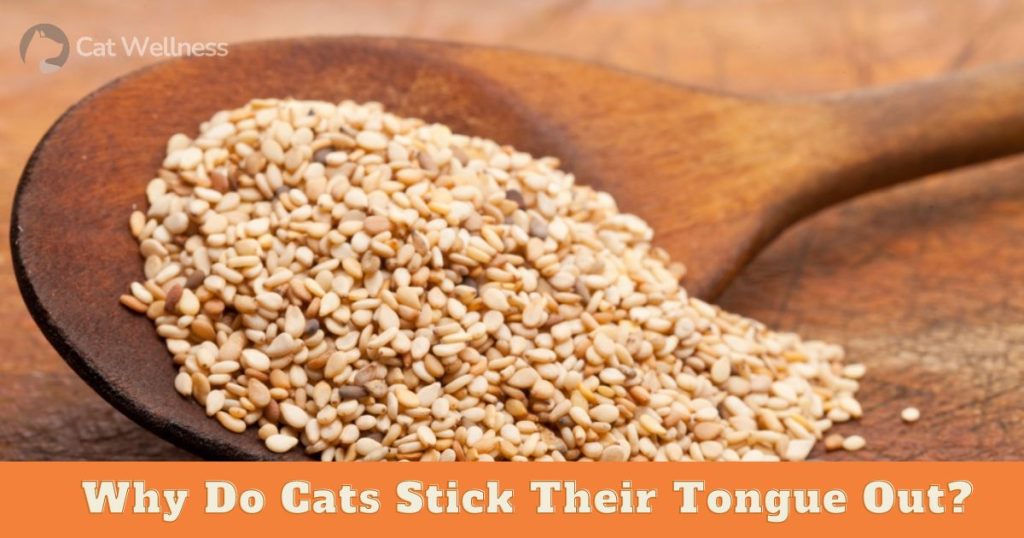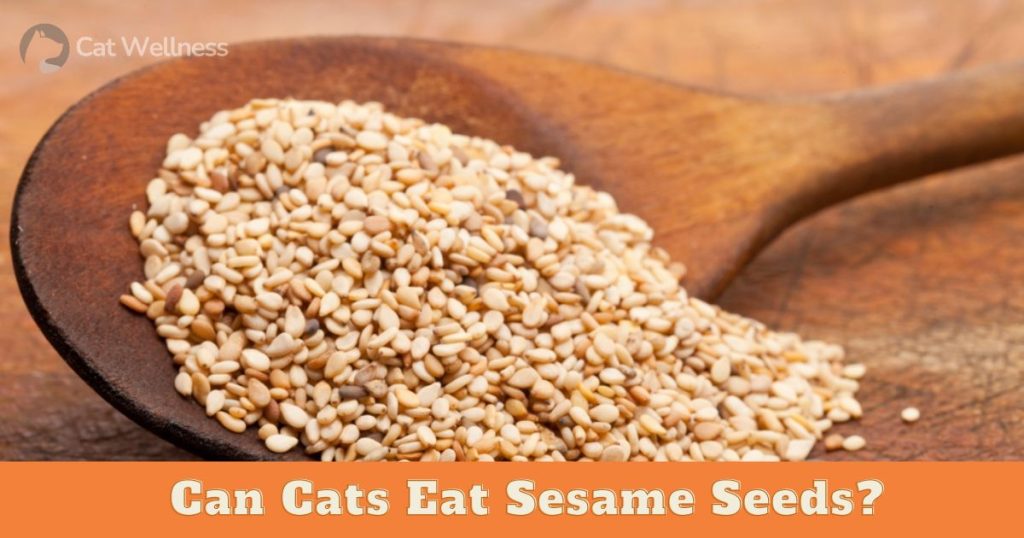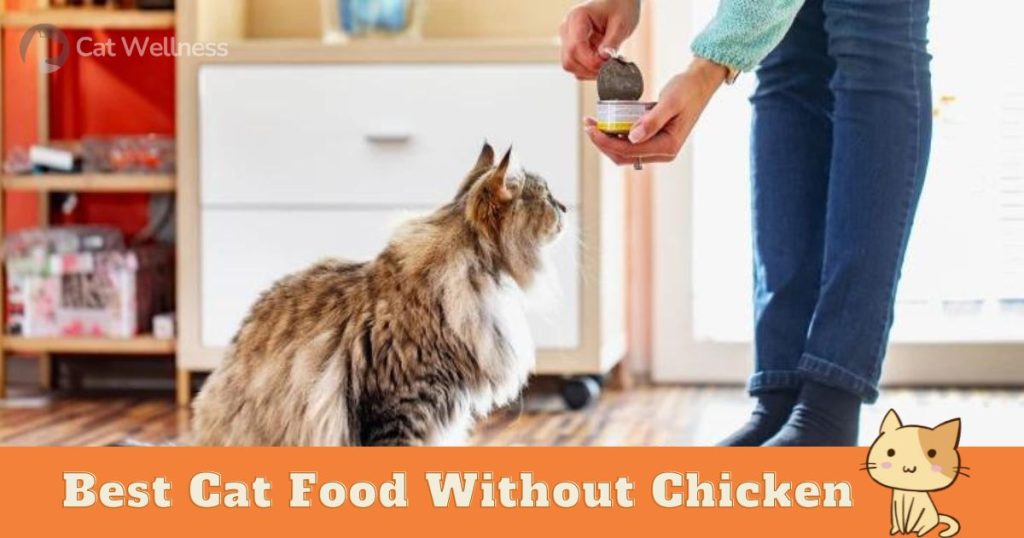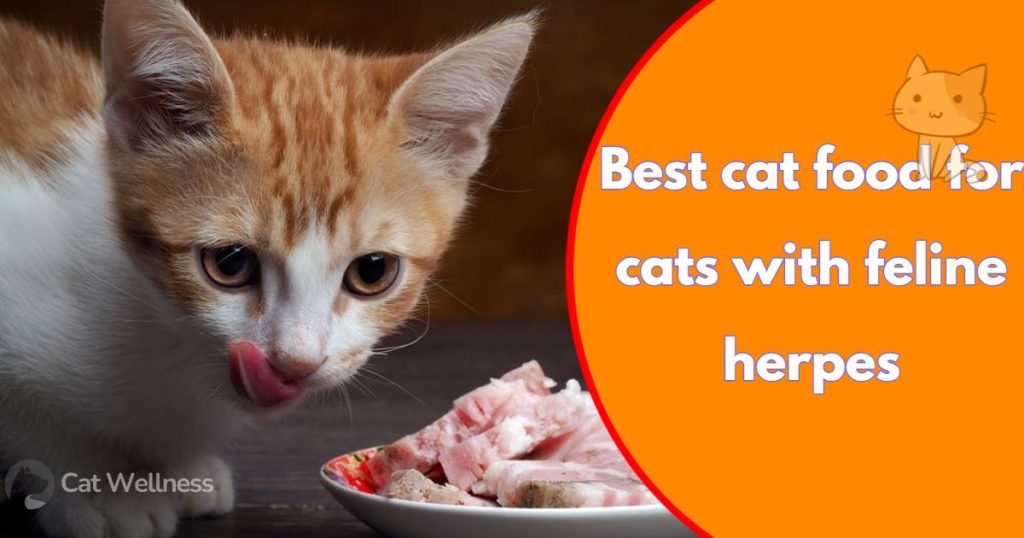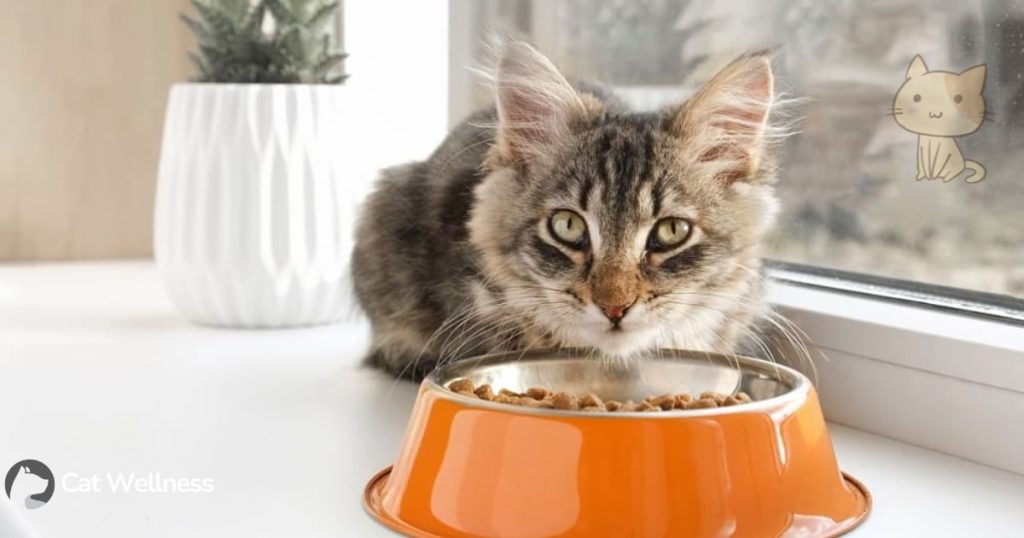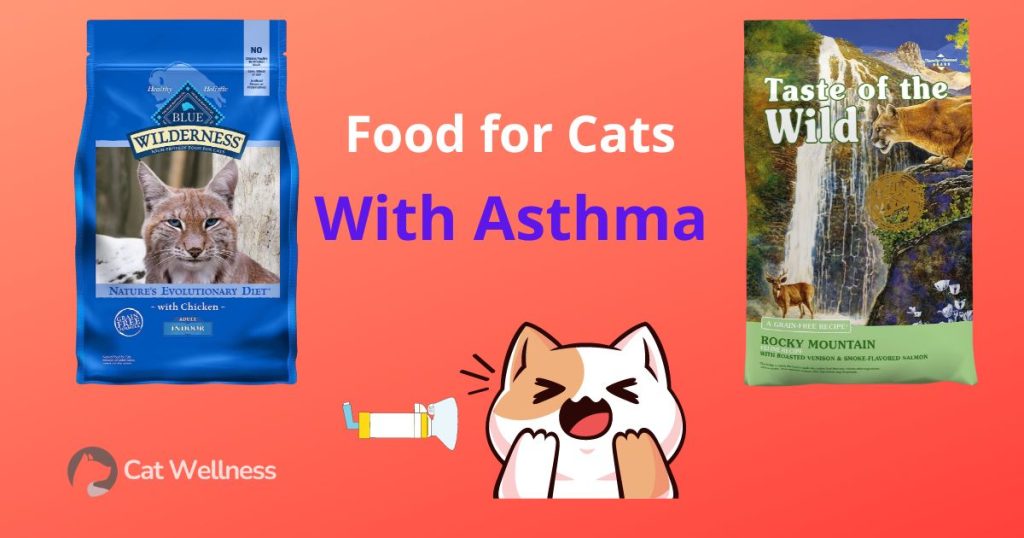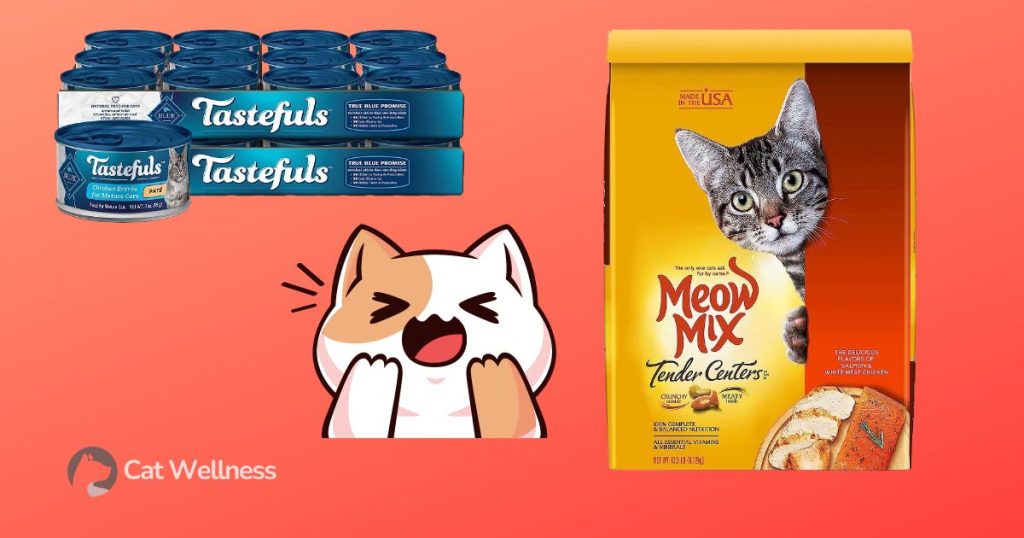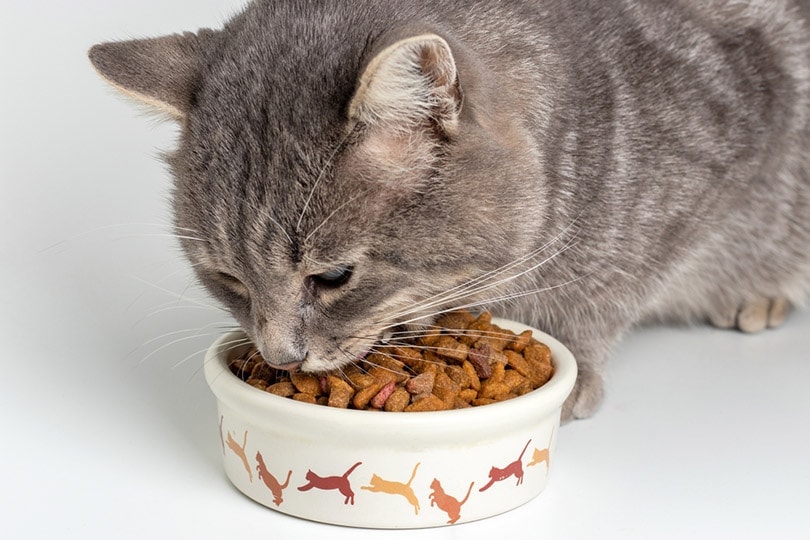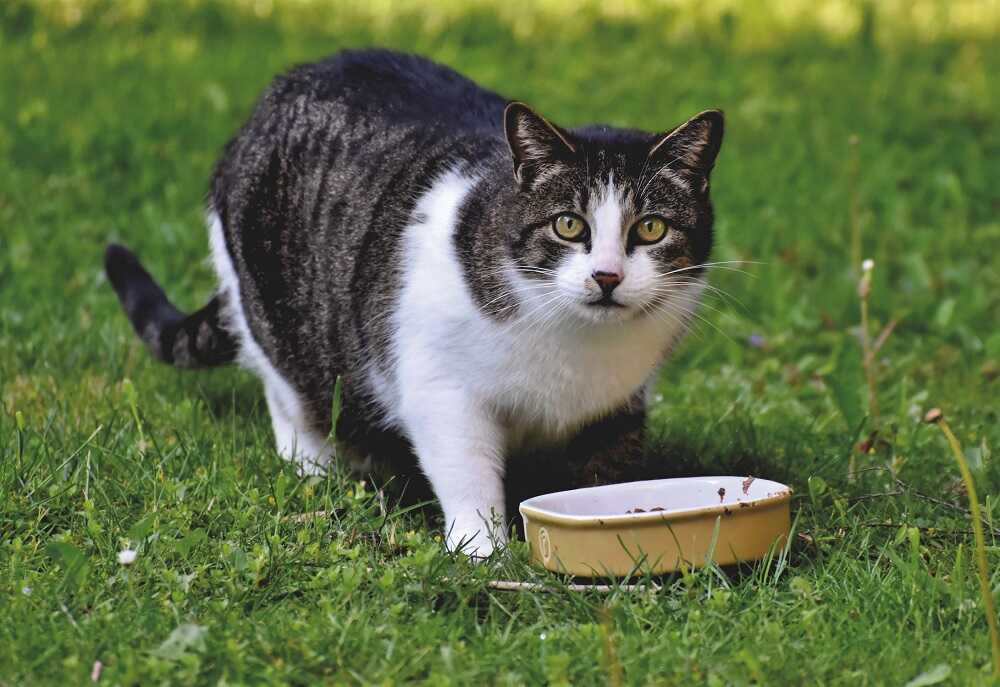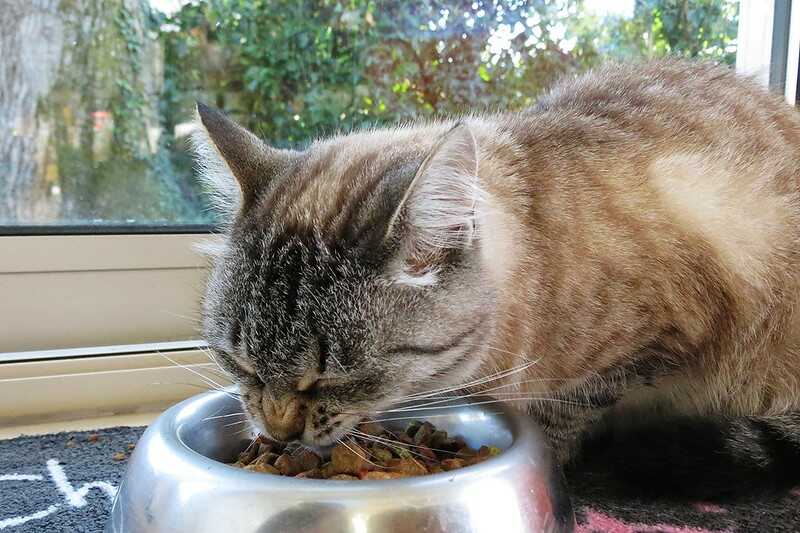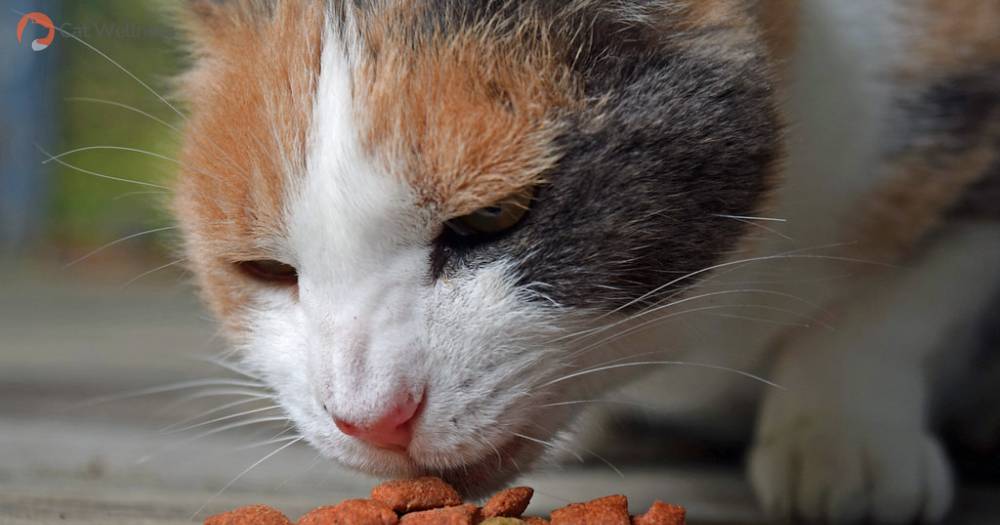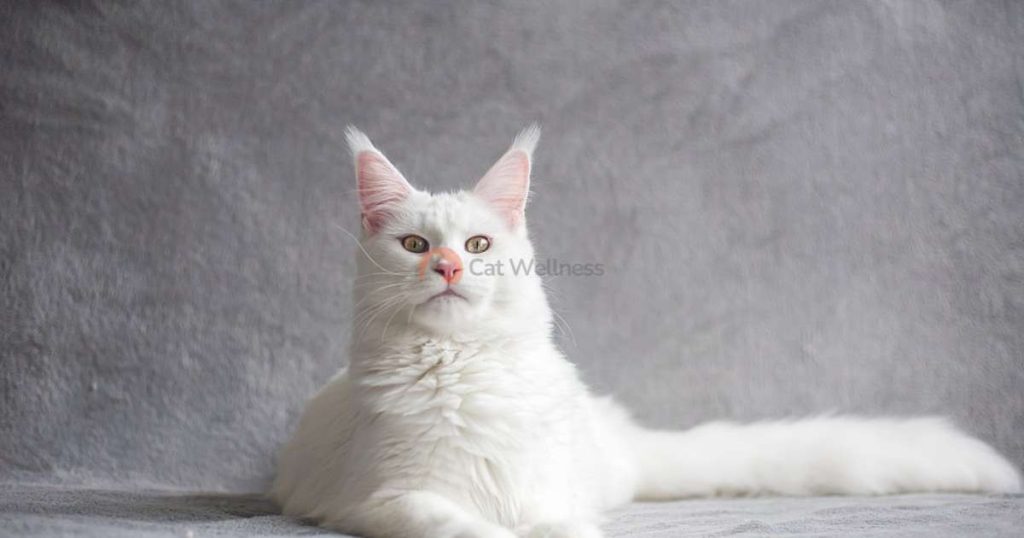Cats have an uncanny knack for showing interest in the most unexpected foods, including the occasional French fry in your snack arsenal. The question is: Can cats have Mcdonald’s fries?
While it may seem harmless at first glance, delving into the complexities of cats and fast food will reveal essential considerations for their health. Please refer to the following article to find the best answer for yourself.
Can Cats Have McDonald’s Fries?
For many cat owners, the question of whether their feline companions can indulge in human food, particularly items like McDonald’s fries, arises frequently.
Understanding a cat’s dietary needs is essential to making informed decisions about their treats, especially considering that cat owners often feed their pets without much knowledge about the ingredients in their daily meals.
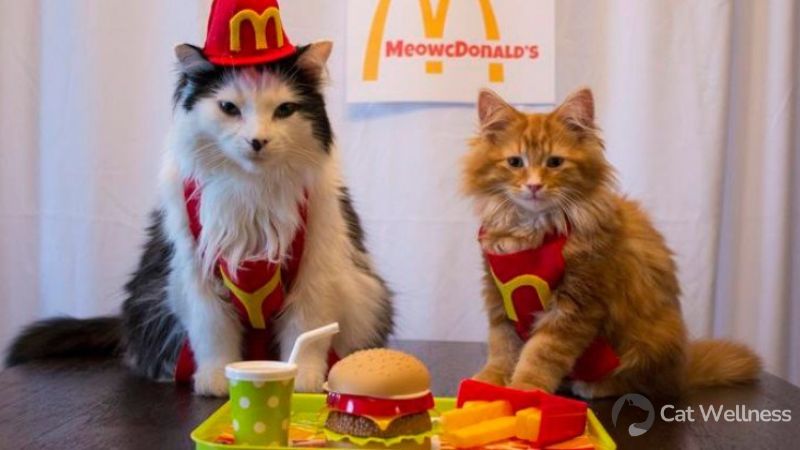
Nutritional Imbalance
Cats are obligate carnivores, which means their diets should be rich in protein and fats while being low in carbohydrates.
While potatoes found in french fries do offer vitamins and fiber, their carbohydrate content is considerably high.
The nutritional composition of fries, dominated by carbohydrates, contradicts the meat-heavy diet that cats thrive on.
Excessive Salt Intake
Salt is a concern when it comes to cats consuming french fries. Cats should not consume more than 21 milligrams of sodium daily.
A single serving of McDonald’s french fries contains over 130 milligrams of salt, surpassing a cat’s recommended sodium intake.
Even if consumed in small quantities, the high salt content poses health risks and isn’t suitable for feline consumption.
Cat Digestion
The idea of letting a cat nibble on a fry dipped in ketchup might seem harmless, but it’s quite the opposite.
Many dipping sauces, including ketchup, have high acid contents that can irritate a cat’s sensitive digestive tract.
Furthermore, ketchup contains onion powder, which is toxic and potentially fatal for cats.
This highlights the importance of avoiding such dips when considering sharing human food with your pet.
Caloric Content and Weight Management
French fries are calorie-dense, making them unsuitable for cats, especially those struggling with weight issues.
Even for cats maintaining a healthy weight, the extra calories from fries can disrupt their balanced diet.
Cat owners must be cautious about calorie intake, as excessive weight gain can lead to various health problems in felines.
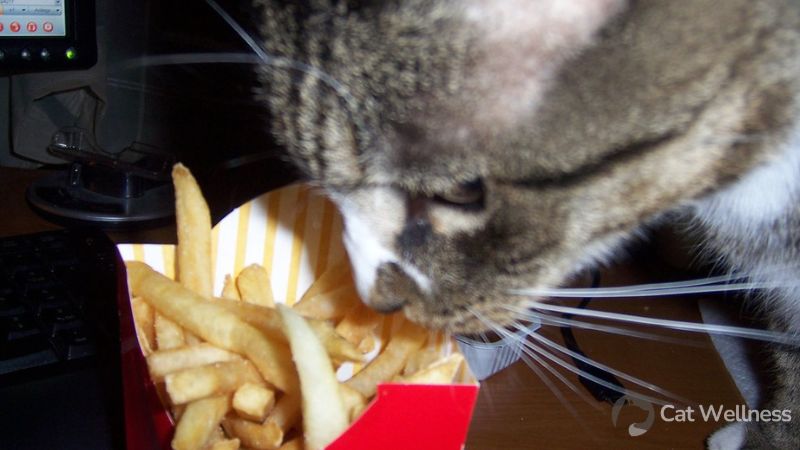
Possible signs after cats ate McDonald’s fries
While cats are obligate carnivores and have specific dietary needs, the occasional curiosity about human food, like McDonald’s fries, can lead to unintended consumption.
Understanding the potential signs that may arise when cats eat such foods is essential for prompt action and ensuring their well-being.
Vomiting and Diarrhea
One of the most common indicators that your cat might be reacting to McDonald’s fries is gastrointestinal distress. If your feline companion has consumed fries, you might notice episodes of vomiting and diarrhea.
These signs suggest that the unfamiliar and often high-fat content of fries could be causing digestive disturbances.
Unusual Behavior
Cats are creatures of habit, and any sudden change in behavior might signal discomfort or illness. If your cat becomes lethargic, unusually quiet, or avoids interaction, it could be a sign that their digestive system is reacting negatively to the fries they consumed. Monitoring their energy levels and behavior is crucial in such instances.
Abdominal Discomfort and Bloating
Cats that ingest foods like fries, which aren’t well-suited for their dietary needs, may experience abdominal discomfort and bloating.
If you notice your cat’s belly appearing distended or exhibiting signs of discomfort when touched around the abdomen, it could indicate digestive upset.
Changes in Appetite
A sudden lack of interest in food or a decreased appetite might suggest that your cat is feeling unwell due to the consumption of inappropriate foods.
Conversely, an increased appetite might indicate that their body is attempting to compensate for any nutritional imbalances caused by the fries.
Behavioral Changes and Irritability
Cats that are experiencing discomfort due to the ingestion of human foods like fries might exhibit changes in behavior.
They could become irritable, restless, or agitated. These changes could stem from the physical discomfort they are facing as a result of the unfamiliar ingredients in the fries.
What To Do If Your Cat Had Fries
When cats eat cooked potatoes
If your feline friend has nibbled on some cooked french fries, there’s generally no need to panic.
Cooked fries are not likely to cause immediate harm, but it’s essential to recognize that they aren’t a healthy choice for your cat’s diet.
Remember, moderation is key. Reserve such treats for rare occasions to ensure your cat’s overall well-being.
When cats eat frozen potato chips
When dealing with frozen fries, your concern should be relatively lower. Most commercially available frozen fries are pre-cooked before freezing, and reheating them at home does not render them toxic for your cat.
While they might be cold, they are not raw and pose less risk compared to their uncooked counterparts.
When cats eat raw potatoes
Raw potatoes, particularly the green parts and sprouts, contain alkaloids that are toxic to cats. If you’re using raw potatoes in your cooking or have a potato garden, ensure that your cat is kept away from these areas.
Raw potato consumption can lead to adverse health effects in your pet due to the presence of harmful alkaloids.
FAQs
How often can I give my cat McDonald’s fries?
Making McDonald’s fries a regular part of your cat’s diet is not advisable. These fries are not nutritionally suitable for cats and can be high in salt and fat.
As an occasional treat, you should limit their consumption to prevent potential health issues.
Can I use ketchup with fries for my cat?
No, you should avoid giving ketchup or other condiments to your cat. Many condiments, including ketchup, contain ingredients that can be harmful to cats.
Ketchup often contains onion powder, which is toxic to them. It’s best to stick to cat-safe treats and avoid sharing human condiments.
What alternatives can I offer my cat instead of fries?
There are plenty of healthier and cat-friendly alternatives to fries. You can consider offering your cat small portions of cooked chicken, plain cooked fish, or commercial cat treats.
Additionally, you can find specialized cat treats designed to meet their dietary needs in pet stores. Homemade cat treats using safe ingredients are another option to explore.
Always ensure that any treat you offer aligns with your cat’s dietary requirements and doesn’t pose a risk to their health.
Conclusion
It is clear that cooked chips are generally not toxic to cats, but they are not a healthy addition to their diet. In addition, ingredients such as garlic, onions or raw potatoes can affect your cat’s digestive system.
Although cats can have mcdonald’s fries from time to time, it’s important that you make their health a priority. As obligate carnivores, cats thrive on a diet rich in foods that nourish them and enrich their lives, so thoughtful food and meal choices are essential.
Recommended Reading

